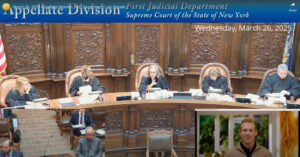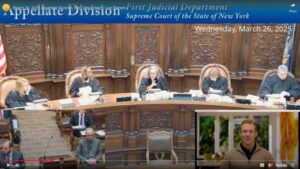The White House Frames the Past by Erasing Parts of It
As the Trump administration pulls government websites and data offline, it is selectively stripping away the public record, letting the president declare his own version of history, archivists and historians said.

Soon after the new administration arrived, things began to go missing from the White House website.
They weren’t just the partisan policy platforms that typically disappear during a presidential transition. Informational pages about the Constitution and past presidents, up in various forms since President George W. Bush was in office, all vanished.
Thousands of other government web pages had also been taken down or modified, including content about vaccines, hate crimes, low-income children, opioid addiction and veterans, before a court order temporarily blocked part of the sweeping erasure. A Justice Department database tracking criminal charges and convictions linked to the Jan. 6, 2021, attack on the Capitol was removed. Segments of data sets are gone, some of the experts who produced them were dismissed, and many mentions of words like “Black,” “women” and “discrimination” have evaporated.
President Trump’s team is selectively stripping away the public record, reconstructing his preferred vision of America in the negative space of purged history, archivists and historians said. As data and resources are deleted or altered, something foundational is also at risk: Americans’ ability to access and evaluate their past, and with it, their already shaky trust in facts.
“This is not a cost-cutting mechanism,” said Kenny Evans, who studies science and technology policy at Rice University’s Baker Institute for Public Policy and runs the White House Scientists Archive at the school. “This slide toward secrecy and lack of transparency is an erosion of democratic norms.”
The casualties are not just digital. The head of the National Archives, which has been described as “the custodian of America’s collective memory,” was fired by Mr. Trump in February. A key source of federal funding for public records depositories nationwide, the Institute of Museum and Library Services, was named in an executive order calling for its elimination “to the maximum extent consistent with applicable law” (its acting director said he planned to “restore focus on patriotism”). As the U.S. Agency for International Development was being gutted, a senior official told employees to shred or burn classified documents and personnel files.







